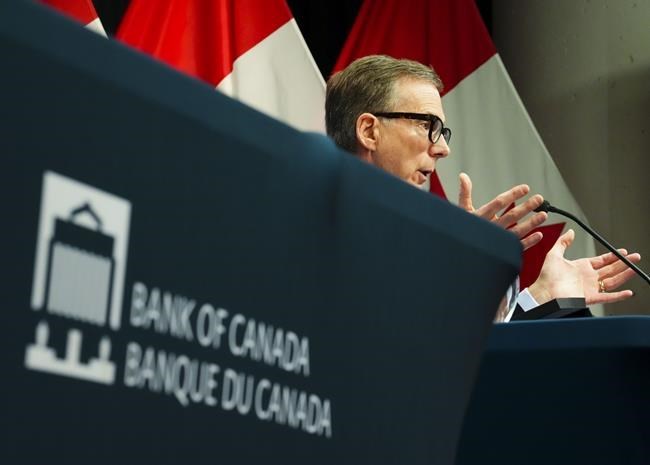OTTAWA — As the Bank of Canada takes a pause from raising interest rates to assess the effects of higher borrowing costs on the economy, economists will be paying close attention to how the labour market is affected.
On Wednesday, the central bank raised its key interest rate for the eighth consecutive time and said it was taking a conditional pause, keeping the door open to further rate hikes if inflation isn't tamed.
In its latest monetary policy report, the Bank of Canada said it expects the full effects of rate hikes on the labour market to play out over a longer period.
As businesses and consumers pull back on spending, economists expect unemployment to rise, though by how much is up for debate as the labour market has remained strong despite the central bank's tightening cycle.
Labour groups have voiced concerns about the Bank of Canada's rate hikes in recent months, with Unifor president Lana Payne previously accusing the central bank of waging war on the working class.
However, some economists are cautiously optimistic that employment may prove to be somewhat resilient to the slowdown, given that unemployment is currently near historical lows.
This report by The Canadian Press was first published Jan. 26, 2023.
The Canadian Press



